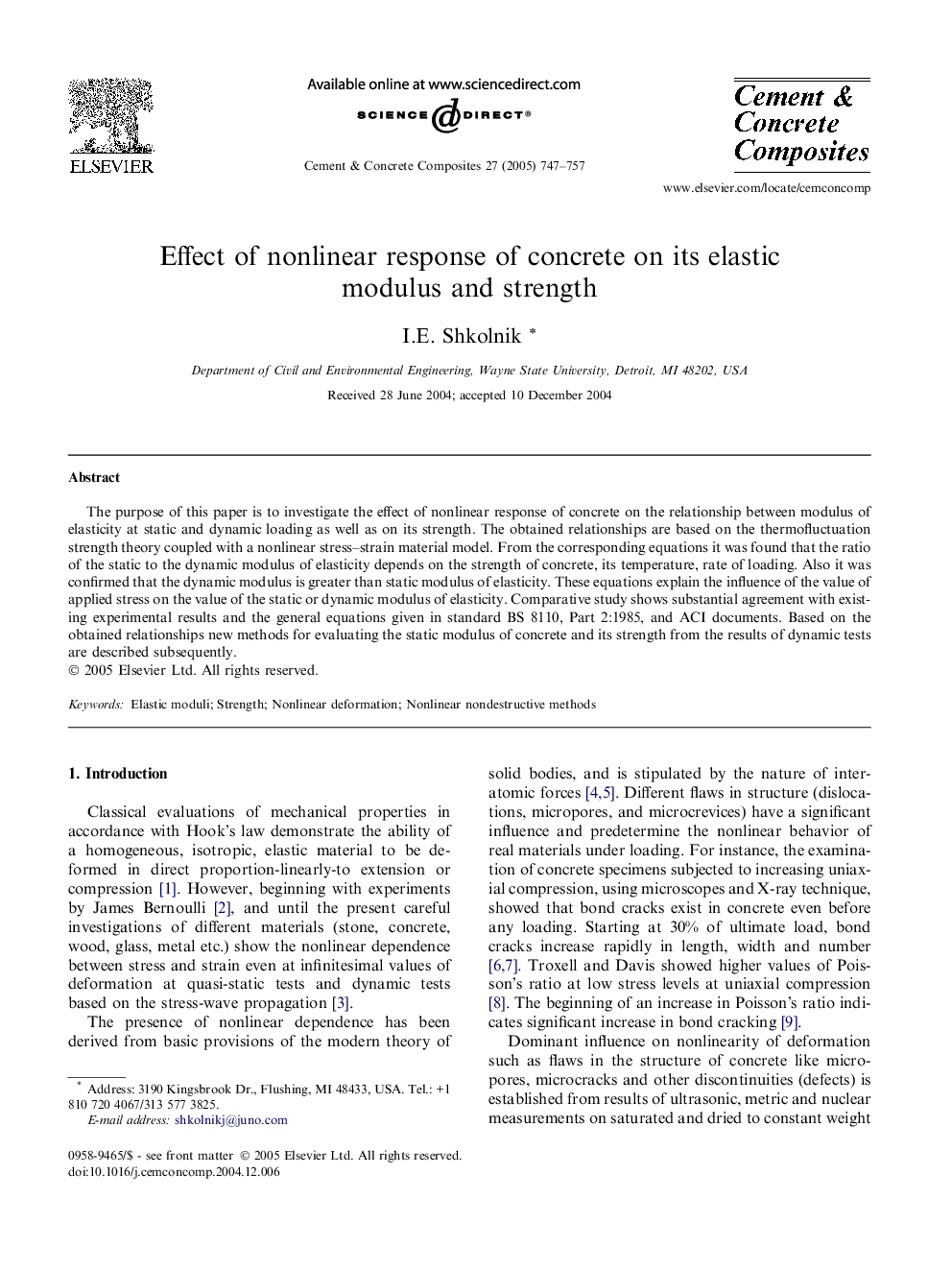| Article ID | Journal | Published Year | Pages | File Type |
|---|---|---|---|---|
| 9777794 | Cement and Concrete Composites | 2005 | 11 Pages |
Abstract
The purpose of this paper is to investigate the effect of nonlinear response of concrete on the relationship between modulus of elasticity at static and dynamic loading as well as on its strength. The obtained relationships are based on the thermofluctuation strength theory coupled with a nonlinear stress-strain material model. From the corresponding equations it was found that the ratio of the static to the dynamic modulus of elasticity depends on the strength of concrete, its temperature, rate of loading. Also it was confirmed that the dynamic modulus is greater than static modulus of elasticity. These equations explain the influence of the value of applied stress on the value of the static or dynamic modulus of elasticity. Comparative study shows substantial agreement with existing experimental results and the general equations given in standard BS 8110, Part 2:1985, and ACI documents. Based on the obtained relationships new methods for evaluating the static modulus of concrete and its strength from the results of dynamic tests are described subsequently.
Related Topics
Physical Sciences and Engineering
Engineering
Industrial and Manufacturing Engineering
Authors
I.E. Shkolnik,
